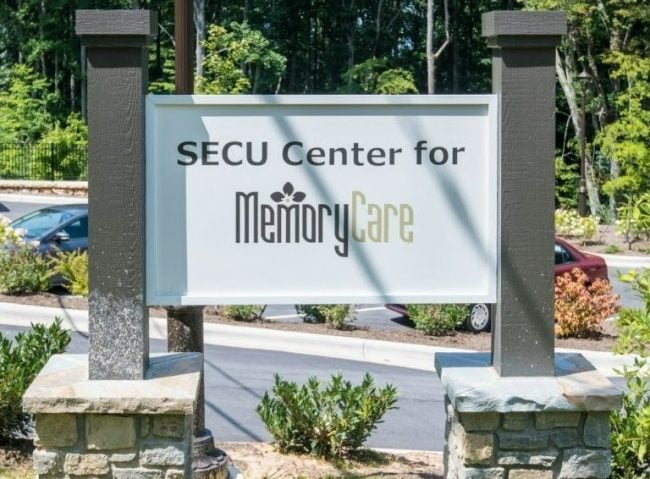NAIROBI, Kenya — Louisiana Credit Union League CEO Anne Cochrandoesn't exactly jet set around the globe like Bono or AngelinaJolie, but through the Strathmore WOCCU African ManagementInstitute, a management certification program she helped createhere, she's arguably touched thousands of member-owners on thebeleaguered continent.
|Cochran first visited Africa 10 years ago through a WOCCUinternational partnership between her league and South Africa'ssavings and credit cooperatives (SACCOs). She soon began workingwith additional SACCO groups in Uganda and Kenya and became aregular face and presenter at African industry meetings.
|“In interacting with them, I discovered they had a real hungerfor education, especially at the manager's level,” Cochran said.“We have so much at our fingertips here in the U.S., so manyexamples and best practices that we can pull from; but in Africa,there just aren't many educational opportunities.”
|Cochran brought the educational gap to WOCCU's attention. As itturns out, the international league was already discussing atraining program with Nairobi's Strathmore University, a businessschool with an enrollment of 4,000 that attracts both traditionaland part-time students.
|Together, Cochran and WOCCU developed a curriculum to support athree-semester, tiered accreditation program based loosely on CUNAManagement School. Managers and board members attend three intense,on-site training sessions that focus on financial management,products and services, policies and procedures, and governance.
|Strathmore provides the location and faculty, and for the mostpart, facilitates the program with WOCCU oversight. The first classbegan in November 2004, and the Strathmore Institute, known asSWAMI, has graduated 114 certified SACCO professionals since.
|Catherine Ford, who manages the program for WOCCU, said there'sconsiderable need for SACCO manager certification.
|“In Africa, credit unions are very much still board dominated,and it's not uncommon to have board members in the credit unionevery day, very much involved in management decisions,” Fordsaid.
|Though SWAMI is geared toward managers, it includes sessions forboard members as well, to ensure the concepts taught at Strathmoreare accepted and implemented back home.
|“With managers and board members attending the trainingtogether, it gives them the opportunity to change behavior by roleplaying; showing them, for example, how managers can participate inthe budgeting process,” Ford said.
|Straight Talk from SWAMI
|Duncan Njiri is a 2006 SWAMI graduate from Kenya who manages an800 member SACCO that has assets of 50 million shillings, theequivalent of $1 million, and serves the employees of a teaplantation. The accounting major found his way to SACCOs as anauditor and took his first credit union management job in 1987.
|Njiri traveled to the United States last month to earn hiscredit union development executive certification from the NationalCredit Union Foundation. While in Madison, he also stopped byWOCCU's headquarters, where he spoke with Credit Union Times.
|Njiri confirmed that African board members have far moreinfluence on day-to-day operations than their U.S. counterparts. Infact, his board was reluctant to pay for more than one semester ofthe SWAMI program, because they weren't sold on the need to educatehim beyond basic data entry and number crunching duties.
|His first SWAMI semester was a real eye opener, Njiri said,because he wasn't aware of the need to budget beyond 12 months, norprovide financial education for members.
|Regulations are weak on the African continent, Cochran said.There's no deposit insurance, for one thing, and a lack ofasset-liability management practices create an environment in whichinsolvent SACCOs can optimistically continue business as usualuntil their cash flow dries up and they are forced to close theirdoors abruptly.
|Because of this, Cochran said she was insistent the curriculuminclude a three-year budget and a business plan with writtenassumptions.
|“I can see that from where we were then to where we are now,it's better, because we have raised the percentage of new members,and we now have a budget of three years, which has improved ourfinancial planning,” Njiri said.
|However, Njiri said he worries that management changes at thetea plantation, which have delivered a new chair and treasurer tothe board, might derail the progress he's made implementing thestrategies learned through SWAMI.
|WOCCU logs the financials from each student's SACCO in adatabase, and plans to keep in touch and compare key financialsfive years after graduation. Because the first graduates are justnow reaching their five-year anniversaries, Cochran said it'sdifficult to quantify the program's effect on the SACCOindustry.
|“If the people who receive the education leave the credit union,then you could be starting all over again,” Cochran said, “but withconsistency in place, I'd say it would be virtually impossible tonot guarantee there would be some positive results.”
|SACCOs are important in Africa, she said, because third worldconditions are found in rural areas throughout the continent.
|“Microfinance companies can go in there with corporate fundingat do loans, but we encourage savings and create attractive optionsto help them save, that's the credit union difference,” Cochransaid.
|Ford said WOCCU partners donate funds to provide scholarshipsfor approximately 20% of students, funding 75% of those who applyfor assistance.
|“We've had the advantage of having very generous donations thepast couple of years,” Ford said. “In particular, the Irish leaguedonation allowed us to provide 12 new scholarships.”
|The United States Agency for International Development'sCooperative Development Program and CUNA Mutual Group Foundationare major U.S. donors, as well as the Canadian Co-operativeAssociation. The African American Credit Union Coalition,Pennsylvania Credit Union Association, American Heritage FederalCredit Union, Southeast Regional Credit Union Schools and theLouisiana Credit Union League also provide financial support.
|In addition to Ford and Cochran, volunteers from Louisiana andPennsylvania leagues attend the SWAMI training both to provideinstruction and quality assurance for the program.
|Complete your profile to continue reading and get FREE access to CUTimes.com, part of your ALM digital membership.
Your access to unlimited CUTimes.com content isn’t changing.
Once you are an ALM digital member, you’ll receive:
- Critical CUTimes.com information including comprehensive product and service provider listings via the Marketplace Directory, CU Careers, resources from industry leaders, webcasts, and breaking news, analysis and more with our informative Newsletters.
- Exclusive discounts on ALM and CU Times events.
- Access to other award-winning ALM websites including Law.com and GlobeSt.com.
Already have an account? Sign In
© 2024 ALM Global, LLC, All Rights Reserved. Request academic re-use from www.copyright.com. All other uses, submit a request to [email protected]. For more information visit Asset & Logo Licensing.









